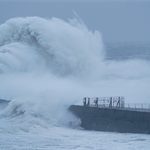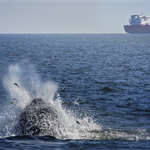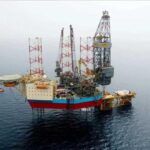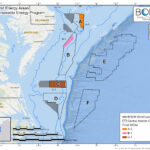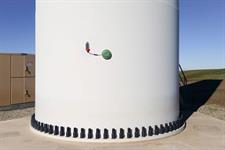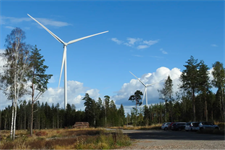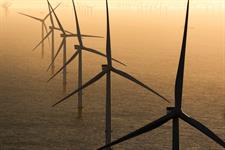Climate change poses greater risk to North Atlantic whales than offshore wind, study finds
Energy Disrupter
.png)
The report, commissioned by the American Clean Power Association (ACP), found that the heating of the oceans is directly impacting the movements of North Atlantic right whales – largely by changing the distribution of their primary food source of tiny zooplankton.
It also showed that the development of offshore wind turbines can have an impact on the hydrodynamics – the way the ocean waters move – as a result of the turbines’ wake effect and subsurface “mixing” around the bases of wind turbines.
However, it said these impacts were not yet resulting in a significant impact. “Extensive build-out of offshore wind would be required to have a significant impact when compared to existing sources of variability,” the study said.
It pointed out that any changes caused by surface currents and temperatures caused by wind turbines in existing, larger scale wind farms elsewhere in the world — such as in Europe’s North Sea “are small enough that they can be difficult to isolate from other sources of natural variability”.
Scientific studies have shown that the distribution of North Atlantic right whales is changing in the North Atlantic ocean at the moment, and the latest ACP study said the evidence suggested this was largely due to the warming of the oceans occurring with the climate crisis.
“Recent shifts in whale distribution and foraging habitat utilisation within the western North Atlantic have been observed and are believed to be associated with shifts in prey distributions caused by warming sea surface temperatures related to climate change,” the study said.
The report did not directly dicuss the spate of whale deaths reported on and near US shores in the North Atlantic, though previous studies, including one conducted by the US National Ocean and Atmospheric Administration (NOAA), concluded that there was no evidence for linking offshore wind to whale mortality events in the North Atlantic.
The ACP-commissioned study meanwhile found that the hydrodynamic impacts of offshore wind turbines could even stimulate the production of zooplankton the whales feed on. “Increased turbulent mixing caused by wind turbines may enhance nutrient mixing and stimulate primary production, in turn enhancing zooplankton abundance,” it said.
The Oceanographic Effects of Offshore Wind Structures and Their Potential Impacts on the North Atlantic Right Whale and Their Prey study was conducted by scientists from environmental engineering company AKRF, Rutgers University and the Bigelow Laboratory for Ocean Sciences on behalf of ACP.


